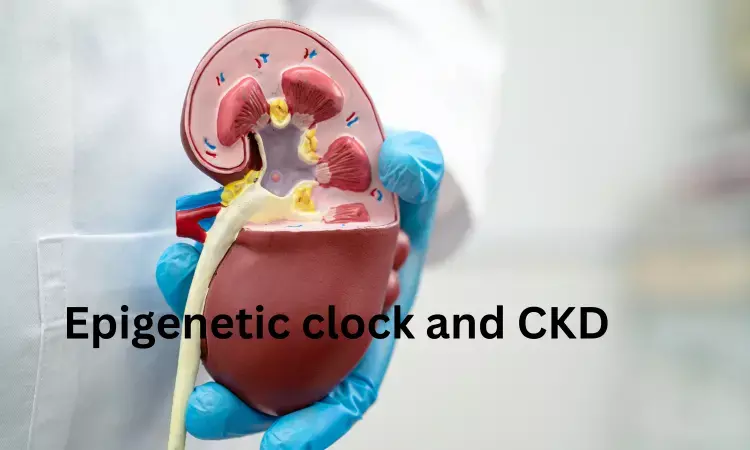- Home
- Medical news & Guidelines
- Anesthesiology
- Cardiology and CTVS
- Critical Care
- Dentistry
- Dermatology
- Diabetes and Endocrinology
- ENT
- Gastroenterology
- Medicine
- Nephrology
- Neurology
- Obstretics-Gynaecology
- Oncology
- Ophthalmology
- Orthopaedics
- Pediatrics-Neonatology
- Psychiatry
- Pulmonology
- Radiology
- Surgery
- Urology
- Laboratory Medicine
- Diet
- Nursing
- Paramedical
- Physiotherapy
- Health news
- Fact Check
- Bone Health Fact Check
- Brain Health Fact Check
- Cancer Related Fact Check
- Child Care Fact Check
- Dental and oral health fact check
- Diabetes and metabolic health fact check
- Diet and Nutrition Fact Check
- Eye and ENT Care Fact Check
- Fitness fact check
- Gut health fact check
- Heart health fact check
- Kidney health fact check
- Medical education fact check
- Men's health fact check
- Respiratory fact check
- Skin and hair care fact check
- Vaccine and Immunization fact check
- Women's health fact check
- AYUSH
- State News
- Andaman and Nicobar Islands
- Andhra Pradesh
- Arunachal Pradesh
- Assam
- Bihar
- Chandigarh
- Chattisgarh
- Dadra and Nagar Haveli
- Daman and Diu
- Delhi
- Goa
- Gujarat
- Haryana
- Himachal Pradesh
- Jammu & Kashmir
- Jharkhand
- Karnataka
- Kerala
- Ladakh
- Lakshadweep
- Madhya Pradesh
- Maharashtra
- Manipur
- Meghalaya
- Mizoram
- Nagaland
- Odisha
- Puducherry
- Punjab
- Rajasthan
- Sikkim
- Tamil Nadu
- Telangana
- Tripura
- Uttar Pradesh
- Uttrakhand
- West Bengal
- Medical Education
- Industry
Epigenetic clock indicates that kidney transplantation and not dialysis mitigates effects of renal ageing

Chronic kidney disease(CKD) is a global concern that affects approximately 10% of the general population worldwide, amounting to 800 million individuals. It is said to be more prevalent in older individuals is part of a collection of age-related ‘burden of lifestyle’ diseases leading to several other diseases like cardiovascular disease (CVD), neurodegenerative diseases, osteoarthritis, chronic obstructive pulmonary disease, type-2 diabetes, obesity and osteoporosis.
A recent study in Journal of Internal Medicine suggests new 'epigenetic clock' developed by researchers at the University of Glasgow and the Karolinska Institute in Stockholm, Sweden accurately measured biological aging in patients with chronic kidney disease. Kidney failure patients displayed an increased biological age as estimated by DNAm clocks compared to population-based controls.
Researchers did a survey on data on clinical variables and blood DNA methylation (DNAm) from CKD stage G3–G5 333 patients were used to estimate biological age based on blood biomarkers, 199 skin autofluorescence and 47 DNAm (Horvath, Hannum and PhenoAge clocks). In the DNAm cohort, they also measured the change in biological age 1 year after the KT or initiation of dialysis. Healthy subjects recruited from the general population were included as controls.
The key findings of the study are
• All three DNAm clocks indicated an increased biological age in CKD G5. However, PA and SAF age tended to produce implausibly large estimates of biological age in CKD G5.
• By contrast, DNAm age was 4.9 years (p = 0.005) higher in the transplantation group and 5.9 years (p = 0.001) higher in the dialysis group compared to controls.
• This age acceleration was significantly reduced 1 year after KT, but not after 1 year of dialysis.
Researchers concluded that “Kidney failure patients displayed an increased biological age as estimated by DNAm clocks compared to population-based controls. Our results suggest that KT, but not dialysis, partially reduces the age acceleration.”
Reference: Ognian Neytchev, Helen Erlandsson et al; Epigenetic clocks indicate that kidney transplantation and not dialysis mitigate the effects of renal ageing; J. Int.Med DOI: https://doi.org/10.1111/joim.13724.
MSc. Neuroscience
Niveditha Subramani a MSc. Neuroscience (Faculty of Medicine) graduate from University of Madras, Chennai. Ambitious in Neuro research having worked in motor diseases and neuron apoptosis is interested in more of new upcoming research and their advancement in field of medicine. She has an engrossed skill towards writing and her roles at Medical dialogue include Sr. Content writer. Her news covers new discoveries and updates in field of medicine. She can be reached at editorial@medicaldialogues.in
Dr Kamal Kant Kohli-MBBS, DTCD- a chest specialist with more than 30 years of practice and a flair for writing clinical articles, Dr Kamal Kant Kohli joined Medical Dialogues as a Chief Editor of Medical News. Besides writing articles, as an editor, he proofreads and verifies all the medical content published on Medical Dialogues including those coming from journals, studies,medical conferences,guidelines etc. Email: drkohli@medicaldialogues.in. Contact no. 011-43720751


